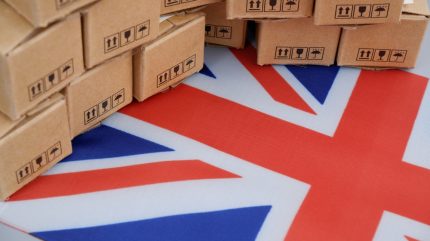
In a landmark move for the packaging industry, 55 founding organisations have committed to the forthcoming UK Packaging Pact, set to launch in April 2026.
The new pact, initiated by the Waste and Resources Action Programme (WRAP) in partnership with PackUK and backed by the UK Government, extends its scope beyond plastics to all packaging materials and pledges to shift industry practices across design, reuse, recovery and data integration.

Discover B2B Marketing That Performs
Combine business intelligence and editorial excellence to reach engaged professionals across 36 leading media platforms.
Widening the scope of packaging change
The UK Packaging Pact replaces the earlier UK Plastics Pact (2018-2025), which focused exclusively on plastic packaging.
The Plastics Pact achieved significant results, including the elimination of 99.8 % of identified problematic plastic items and a rise in recyclability of rigid plastics to 96 % under WRAP’s reporting.
The new pact broadens the agenda to include materials such as glass, cardboard, metal and multi-material packaging, and spans categories from food and drink to beauty, pet products and household goods.
Under its framework, the pact specifies four principal goals:

US Tariffs are shifting - will you react or anticipate?
Don’t let policy changes catch you off guard. Stay proactive with real-time data and expert analysis.
By GlobalData- optimise packaging design to reduce material use, increase recycled content and remove unnecessary components;
- scale reuse and refill systems to shift away from single-use packaging;
- support investment in circular infrastructure across collection, sorting, recycling and re-processing;
- harmonise data and traceability to improve decision-making across the value chain.
Industry and government collaboration at scale
The list of 55 founding pledgers includes major UK retailers, manufacturers and waste-management firms. Among those named are ASDA, Tesco, Lidl, Ocado Retail, Arla, Haleon, Yeo Valley, GoUnpackaged and the waste-management companies Biffa, SUEZ and Veolia.
The UK Government has emphasised the role of extended producer responsibility (EPR), deposit-return schemes and the forthcoming regulatory environment as part of this shift.
A senior minister commented that businesses and government must ensure packaging is used repeatedly, and that the pact represents a collective move to “go further and faster” in greener packaging practices.
Implications for the packaging value chain
For packaging producers, brand owners, retailers and waste-management firms the new pact signals a major shift in expectations.
The “circular packaging system” concept embedded in the pact means that packaging will increasingly be judged not just on design for recyclability but on its role in reuse, refill and material recovery cycles.
The pact sets out a ten-year timeline (2026-2035) for industry transformation, offering a platform where businesses can align with legislative change, gain competitive advantage through early action, and influence evolving regulation.
From a supply-chain perspective, key implications include:
- manufacturers may need to redesign packaging portfolios to minimise single-use components and favour materials with high recycled content;
- retailers will need to incorporate refill and reuse models more broadly;
- waste-management and recycling firms must scale infrastructure and collaborate with the value chain to ensure recovered materials are processed domestically;
- data-systems will need to evolve so that traceability, reporting and transparency become standard practice.
The pact’s emphasis on harmonising data is particularly timely given regulatory developments such as the UK’s Simplified Recycling reforms and EPR regime.
For global packaging industry observers the UK initiative offers a case study in voluntary collaboration aligned to policy. It demonstrates how a national framework can convene business, government and innovators to reshape packaging systems. While voluntary in nature, the timing—ahead of major regulation—gives this pact strategic relevance.
The founding organisations’ commitment and the April 2026 launch date now set the pace for the UK’s packaging transformation.
Businesses operating in the packaging value chain are advised to assess alignment with the pact’s goals, evaluate their current packaging strategy for reuse and recovery, and engage in cross-sector collaboration to prepare for the next era of circular packaging.
The latest progress update from the UK Plastics Pact is published today.





